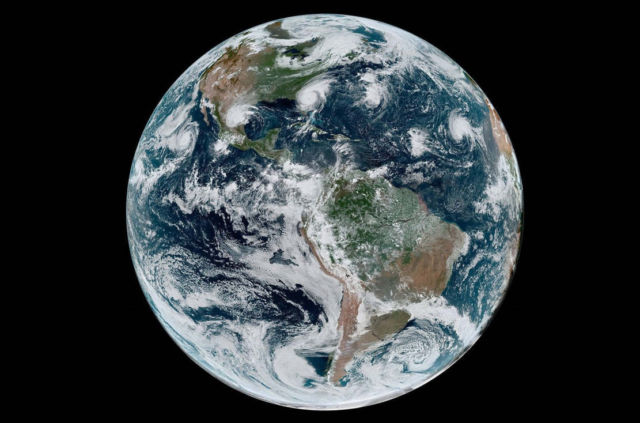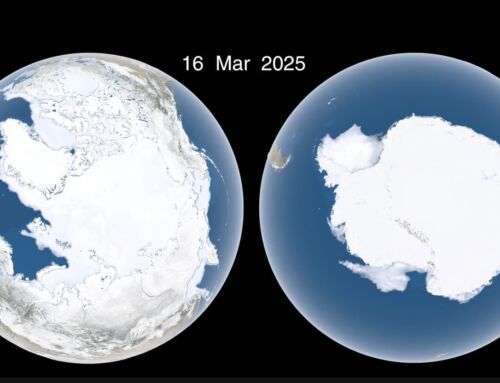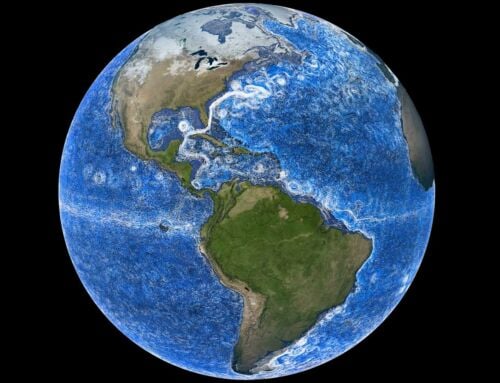More than 11,000 scientists declare climate emergency and endorse six steps for action.
A global team of scientists including Dr Thomas Newsome a signatory and researcher at the University of Sydney and international colleagues, has warned that “untold human suffering” is unavoidable without deep and lasting shifts in human activities that contribute to greenhouse gas emissions and other factors related to climate change.
Thomas Newsome said:
“While things are bad, all is not hopeless. We can take steps to address the climate emergency.”
The declaration is based on scientific analysis of more than 40 years of publicly available data covering a broad range of measures, including energy use, surface temperature, population growth, land clearing, deforestation, polar ice mass, fertility rates, gross domestic product and carbon emissions.
In a paper published today in BioScience, the authors from the University of Sydney, Oregon State University, University of Cape Town and Tufts University, along with more than 11,000 scientist signatories from 153 countries, declare a climate emergency, present data showing trends as benchmarks against which to measure progress and outline six areas of action to mitigate the worst effects of a human-induced climate change.
The scientists point to six areas in which humanity should take immediate steps to slow down the effects of a warming planet:
- Energy. Implement massive conservation practices; replace fossil fuels with clean renewables; leave remaining stocks of fossil fuels in the ground; eliminate subsidies to fossil fuel companies; and impose carbon fees that are high enough to restrain the use of fossil fuels.
- Short-lived pollutants. Swiftly cut emissions of methane, hydrofluorocarbons, soot and other short-lived climate pollutants. This has the potential to reduce the short-term warming trend by more than 50 percent over the next few decades.
- Nature. Restrain massive land clearing. Restore and protect ecosystems such as forests, grasslands and mangroves, which would greatly contribute to the sequestration of atmospheric carbon dioxide, a key greenhouse gas.
- Food. Eat mostly plants and consume fewer animal products. This dietary shift would significantly reduce emissions of methane and other greenhouse gases and free up agricultural lands for growing human food rather than livestock feed. Reducing food waste is also critical – the scientists say at least one-third of all food produced ends up as garbage.
- Economy. Convert the economy’s reliance on carbon fuels to address human dependence on the biosphere. Shift goals away from the growth of gross domestic product and the pursuit of affluence. Curtail the extraction of materials and exploitation of ecosystems to maintain long-term biosphere sustainability.
- Population. Stabilise global population, which is increasing by more than 200,000 people a day, using approaches that ensure social and economic justice.
“Despite 40 years of major global negotiations, we have generally conducted business as usual and are essentially failing to address this crisis,” said Professor William Ripple, distinguished professor of ecology in the Oregon State University College of Forestry and co-lead author of the paper. “Climate change has arrived and is accelerating faster than many scientists expected.”
“Scientists have a moral obligation to warn humanity of any great threat,” said Dr Newsome from the School of Life and Environment Sciences. “From the data we have, it is clear we are facing a climate emergency.”
Image: On Sept. 4, 2019, a loose chain of tropical cyclones lined up across the Western Hemisphere. Credit NASA
More at the press release






Leave A Comment